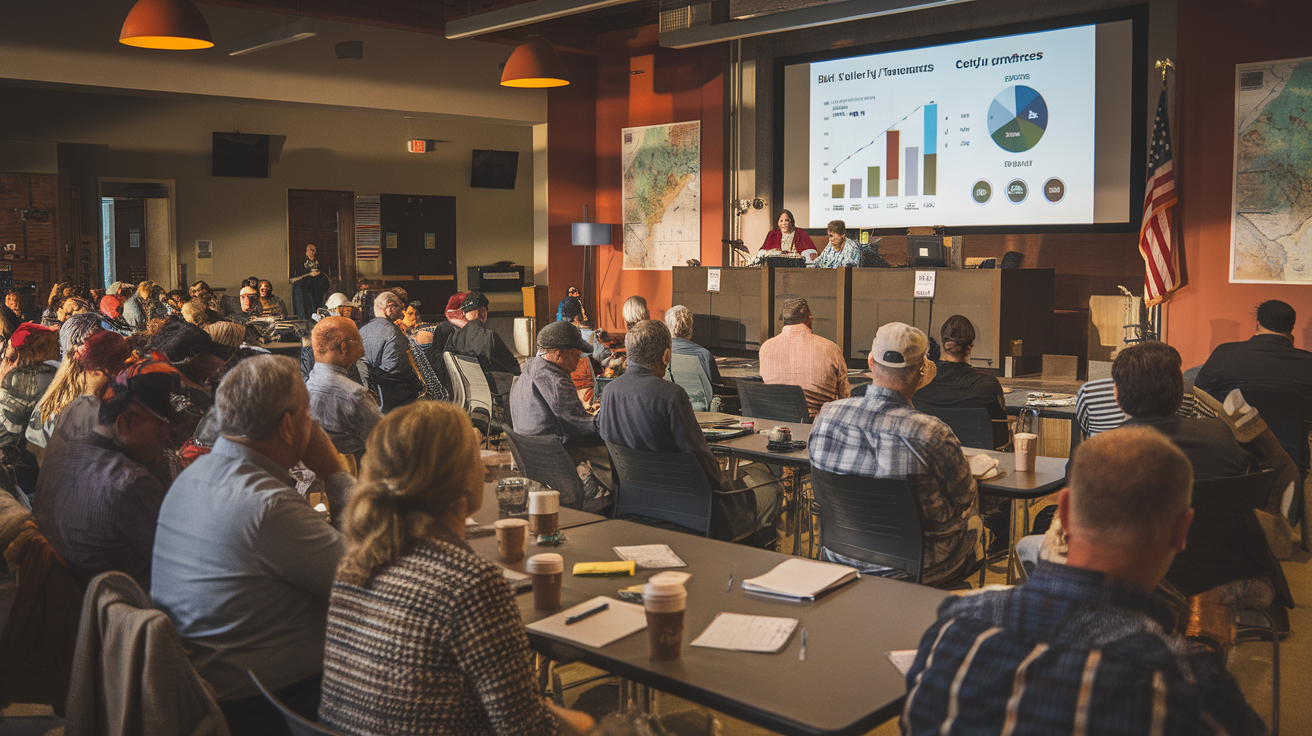In the bustling suburb of Mansfield, Texas, where families balance work, school, and weekend fun, the city's wallet is about to get a close look.
On the City of Mansfield's official website, a notice went out inviting everyone to a public hearing on the proposed fiscal year 2025-2026 budget.
Set to kick off the new fiscal year on October 1, 2025, this meeting lets residents voice opinions on how tax dollars get spent across all city funds.
From fixing roads to funding parks and keeping the lights on at community spots, the decisions here shape daily life for the town's 75,000-plus folks.
Picture a typical Mansfield evening: Neighbors like mechanic Carlos Mendoza gathers with his wife Ana at the kitchen table, reviewing the budget summary online.
"We've got growing needs with all these new families moving in," Carlos says, thinking about the recent park upgrades and business booms downtown.
The proposed budget, built on input from city planners, aims to cover everything from public safety to recreation.
According to financial experts at the Texas Municipal League, budgets like this often include allocations for infrastructure, which in Mansfield could mean more for projects like the Fields at Station 63 reopening or Katherine Rose Park facelift.
City finance director Elena Vargas, with years of experience managing similar plans, explains that the goal is balanced spending to support growth while keeping services strong.
Residents are already chatting at coffee shops and online groups. Teacher Sarah Wilkins is excited about potential boosts to schools and libraries.
"Investing in education pays off for our kids," she shares, citing studies from the National League of Cities that show well-funded communities thrive.
Mansfield's track record adds trust: The city has earned awards for transparent budgeting, with past years seeing steady improvements in services without major hiccups.
This hearing builds on that, giving a platform for input before final approvals.
But whispers of worry are growing too. Some, like retiree Pat O'Brien, fret over possible tax hikes. "Property values are up, and so might our bills," he says at a neighborhood meetup.
Data from the U.S. Census Bureau notes that in fast-growing Texas suburbs, budgets sometimes lead to rate increases of 5-10 percent to cover expansions.
Critics point to recent splurges on parks and fields, wondering if essentials like road repairs or emergency services get shortchanged.
Supporters argue it's necessary for a vibrant town, but others see it as favoring flashy projects over everyday needs.
This budget hearing raises a key question: Will the 2025-2026 plan smartly fuel Mansfield's progress, creating better schools, safer streets, and more fun for families, or will it overload taxpayers with rising costs that squeeze household budgets and widen gaps between haves and have-nots?
Drawing from expert analyses by groups like the Government Finance Officers Association, the outcome depends on community voices.
As the hearing approaches, locals are urged to review the details on the city site and speak up.
Whether it leads to cheers or debates, Mansfield's future hangs on these dollars and decisions. Join the conversation and help steer the ship.

